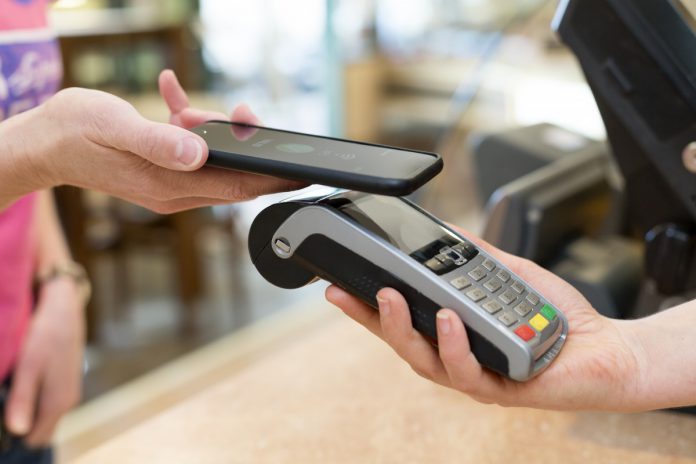Worldpay has revealed a ‘golden era of payments’ awaits in its latest Global Payments Report, which is being driven by the use of digital wallets.
The 2024 report has predicted that by 2027, digital wallets are expected to make up half of all e-commerce payments in the UK. They are worth a projected £203.5bn in market value and estimates that digital wallet usage will more than double at the UK point-of-sale (POS), rising from 14% to 29% of transaction value over the next three years.
Digital wallets emerged in the late 1990s, with usage steadily increasing from the mid-2000s. However, the COVID-19 pandemic acted as the catalyst, which would see the payment method boom across the globe.
Pete Wickes, General Manager, EMEA at Worldpay, commented: “Consumers are not just embracing digital wallets, they are driving a revolution in the payments landscape. The combined effect of the pandemic, alongside digital wallet technology reaching a level of maturity and implementation in recent years, has driven a monumental rise in adoption both globally and locally in the UK.
“It is hard to deny the ease of use and convenience digital wallets provide whether shopping in store or online. From this basis, merchants now have a huge opportunity to diversify their payment choice to meet customer needs.”
Since this seismic shift in usage, digital wallets are a ‘go-to’ payment type for UK consumers. The increased use of digital wallets is providing a welcome boost to the world’s third-largest e-commerce market, which is expected to see 7% compound annual growth (CAGR) through 2027.
However, Britons still have deep connections with traditional payment methods, such as credit and debit cards, with 69% of consumers using it to fund their wallets, showing how traditional payment methods are being carried over into modern methods.
Furthermore, credit and debit card usage outside of digital wallets has remained strong, with the payment method accounting for 46% of e-commerce and 74% of POS transaction value in 2023.
Kate Nightingale, Consumer Psychologist and Founder of Humanising Brands, said, “Adoption of new payment methods is a complex cognitive and effective decision-making process. Outside a considered evaluation of benefits, like convenience, self-expression and brand incentives, and risks such as safety and privacy concerns, the most impactful promoter of adoption is trust.
“However, there is a difference between initial pre-adoption trust and continuation trust. Initial trust comprises the perceived integrity, benevolence and capability of a provider. Continuation trust relies on confirmation of a customer’s expectations, ongoing satisfaction levels and the perceived usefulness of a payment method.”
One of the most significant UK payment deals for digital wallets of 2023 saw Apple integrate Open Banking for digital wallets.
This enabled users to view and access relevant transaction information on Apple Pay, such as up-to-date debit card balance, enabling users to make more informed purchases and frequently view information for greater control.
Nightingale added: “Social factors cannot be ignored with word-of-mouth, prevalence of the payment method in a customer’s social circles, influence by authority figures as well as the impact of partnerships and sponsorships by already trusted organisations, all shaping consumer behaviour.
“Those operators, merchants and financial institutions that understand how to navigate this complex behavioural matrix to drive consideration and adoption across a range of payment methods will come out on top.”























